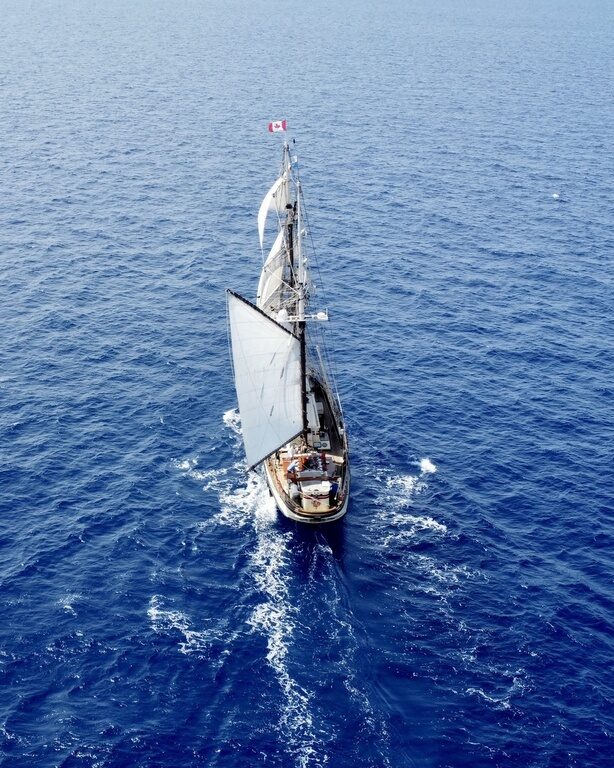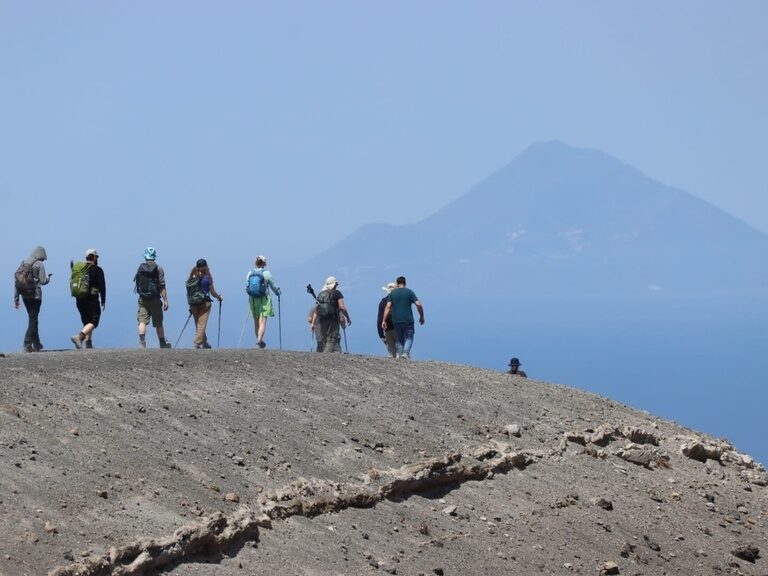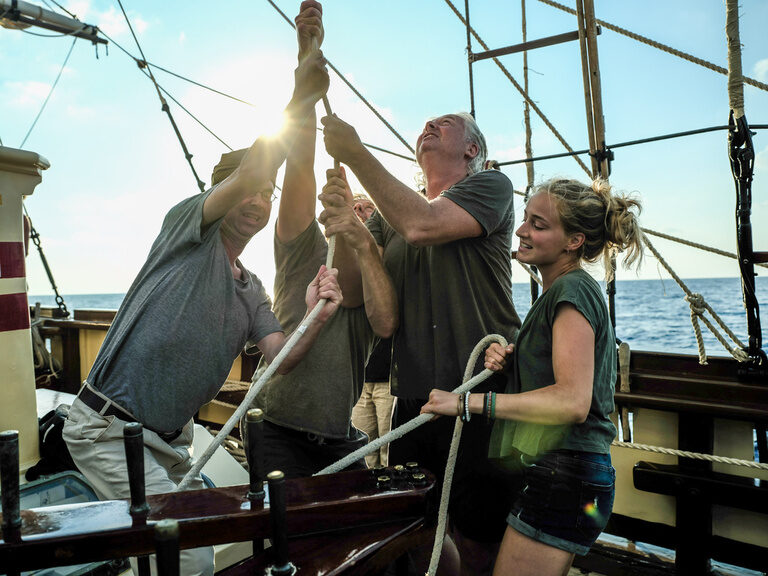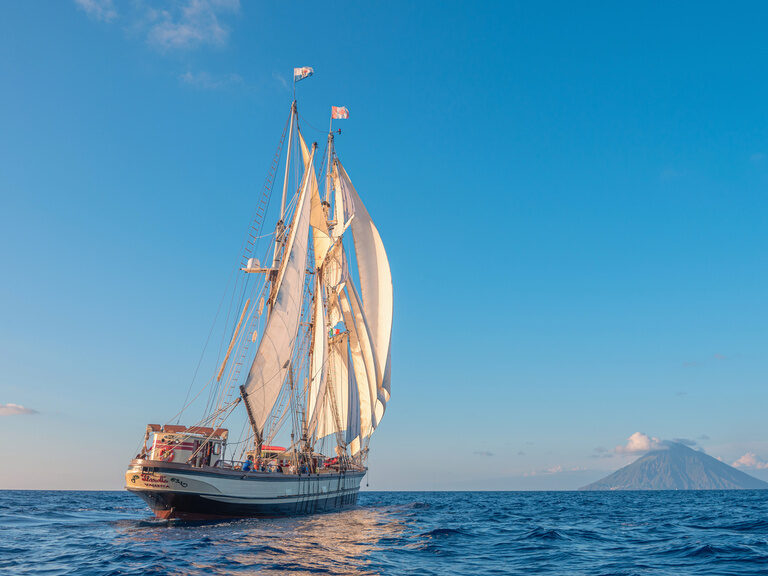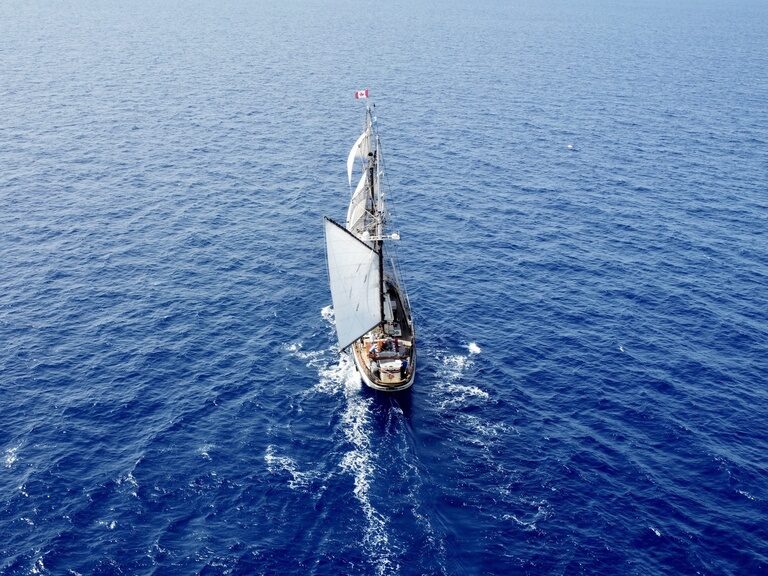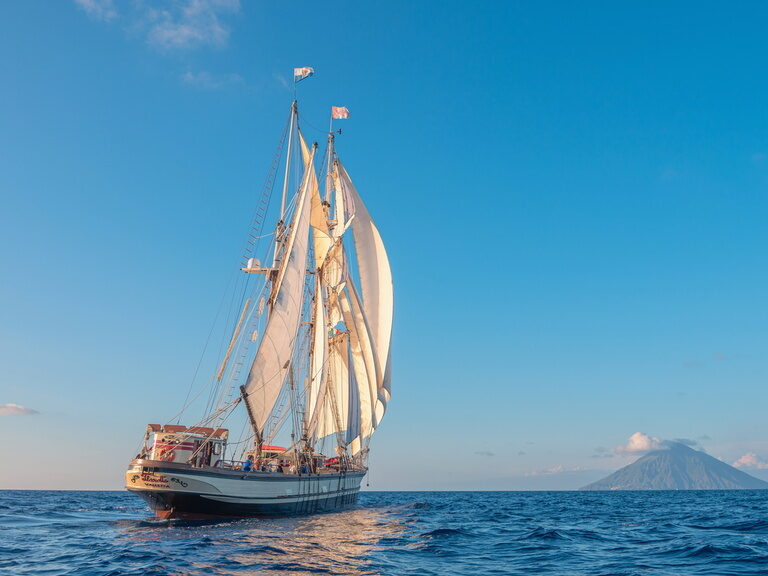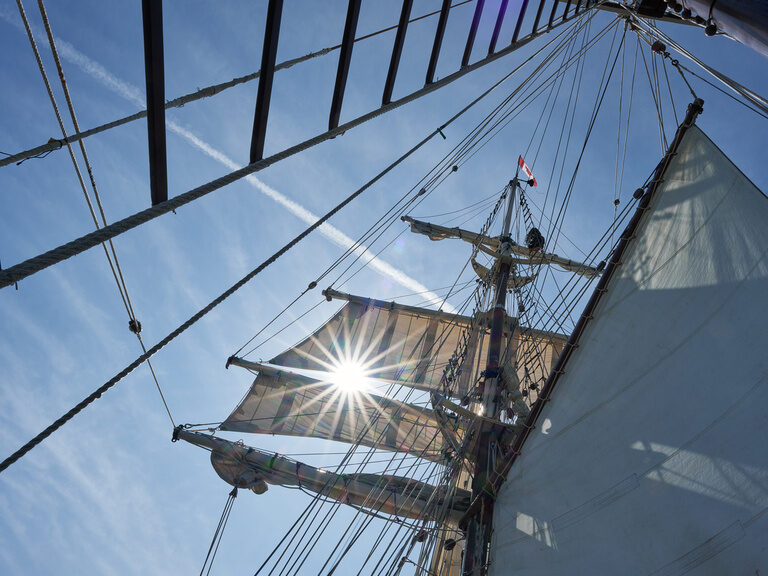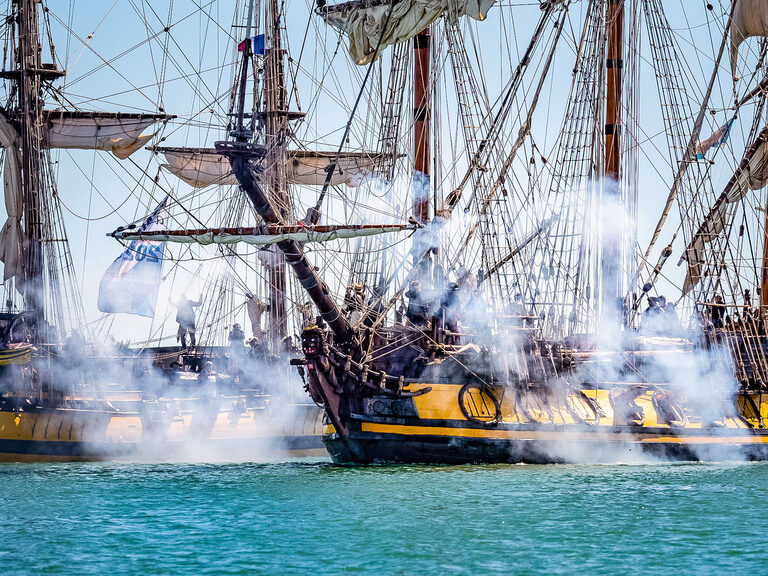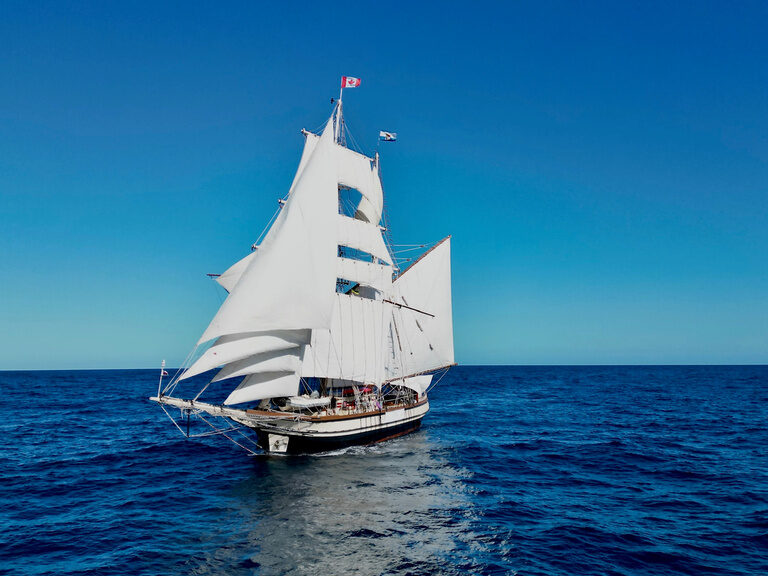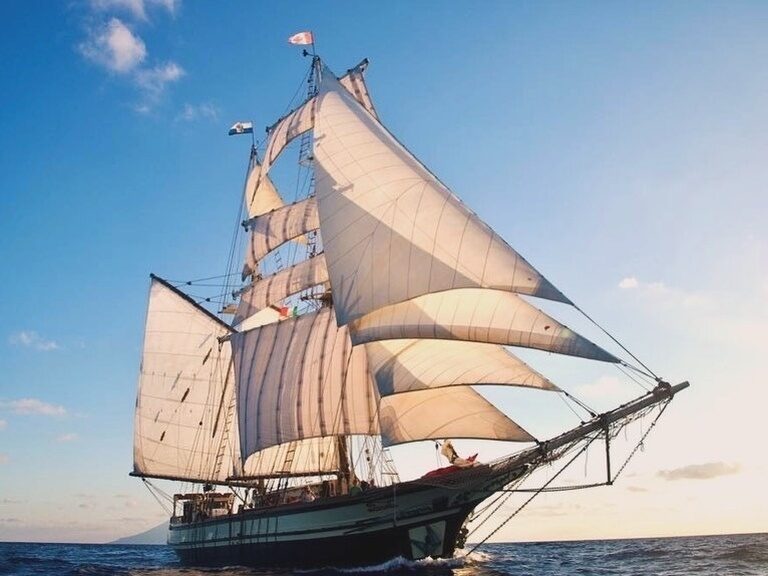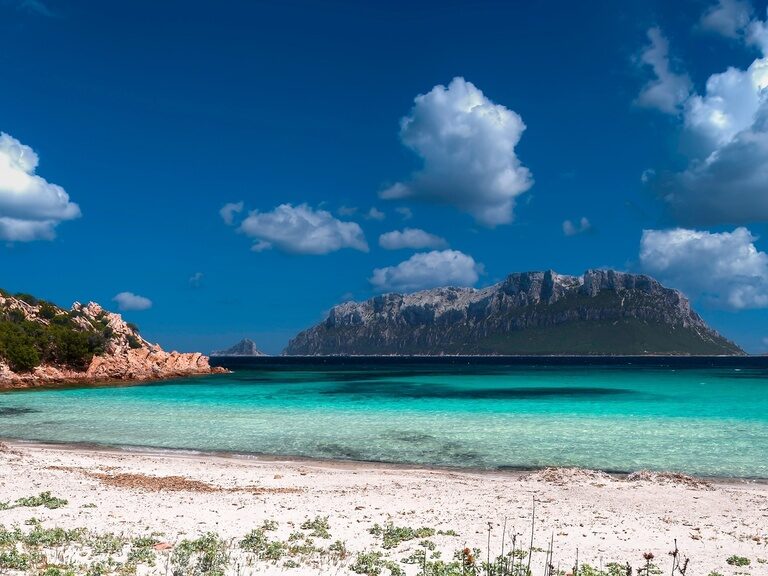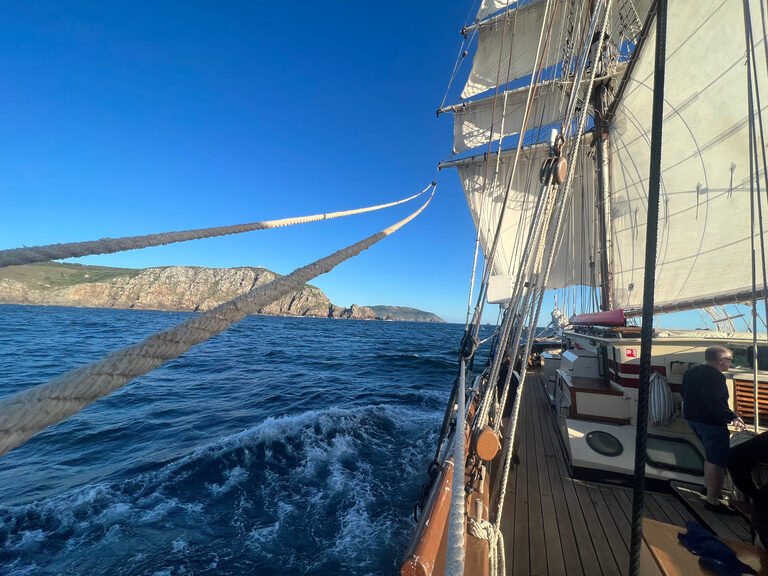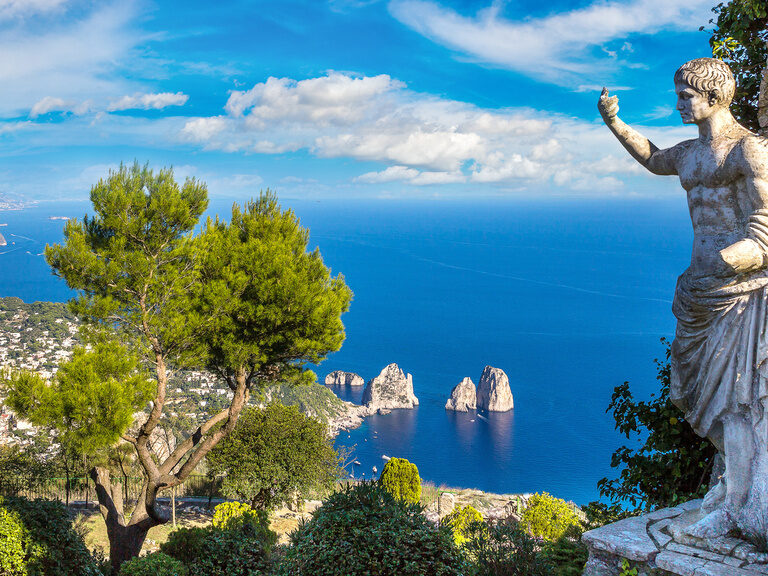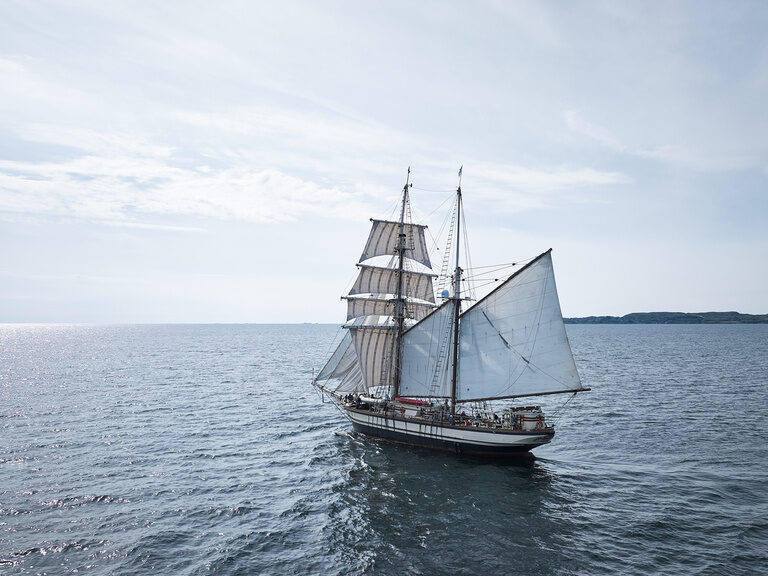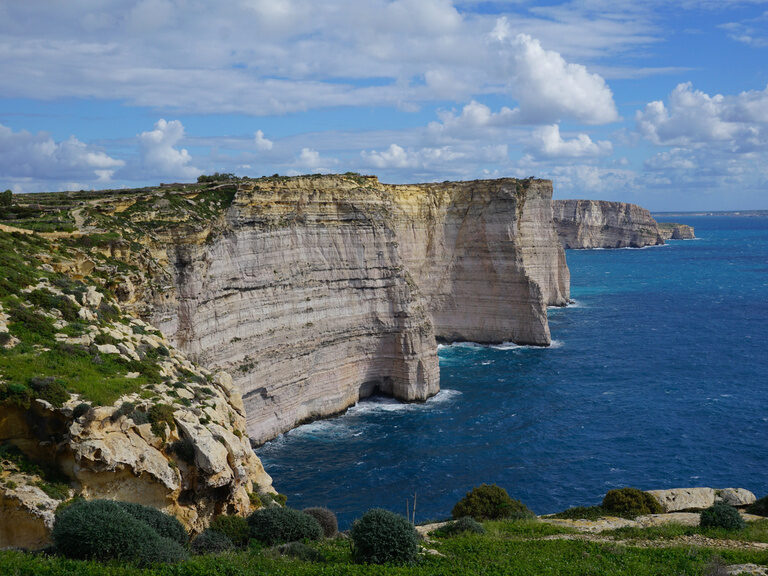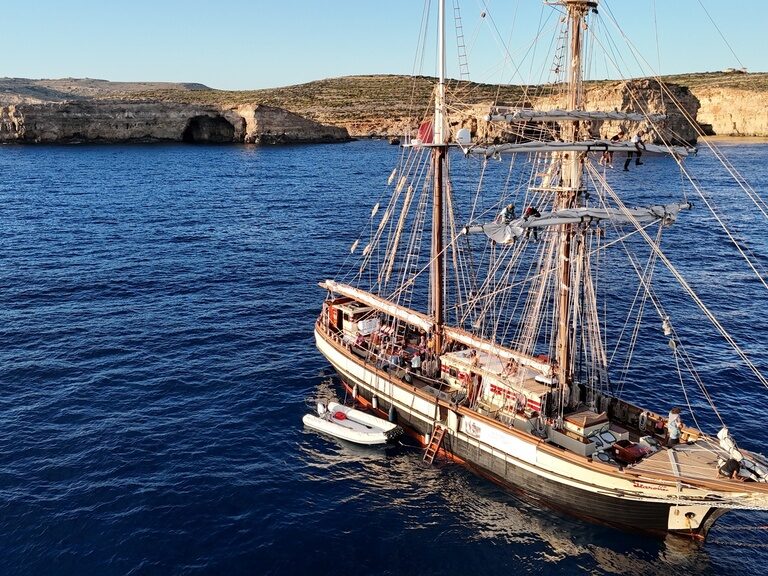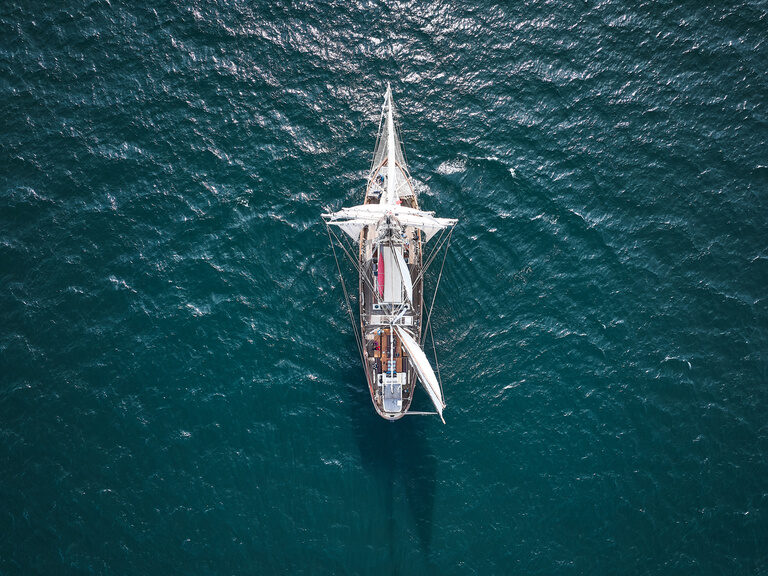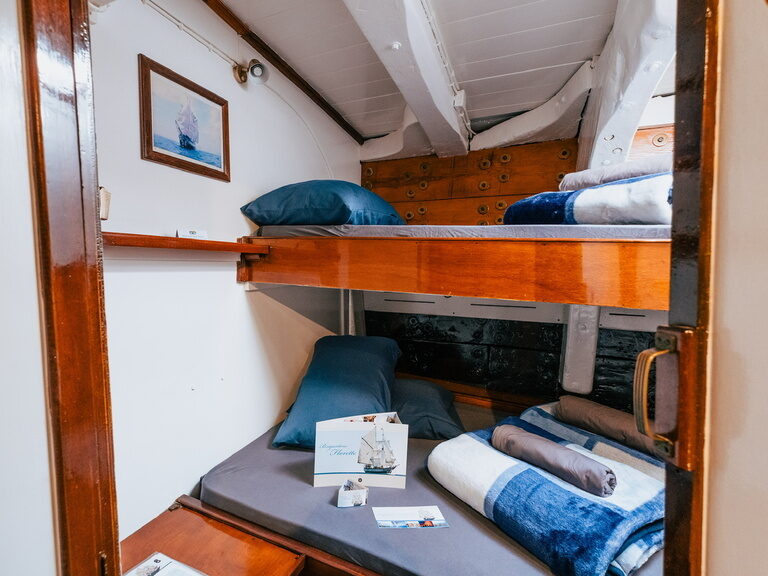Sailing Tours & Calender
Upcoming Sailing Adventures
Sail aboard the historic brigantine Florette and discover the Mediterranean the way it was meant to be seen: by wind, water, and time. Each voyage traces a different route between Malta, Sicily, Sardinia, and the Aeolian Islands, from quiet anchorages to the fire-lit slopes of Stromboli. Life on board is simple and shared: real sailing, good food, and the kind of days that move with the sea.
Note: The listed price includes a shared meal contribution of €10 for breakfast and €30 for lunch or dinner per day. It is paid on board on the first day of your voyage.
All Tours


